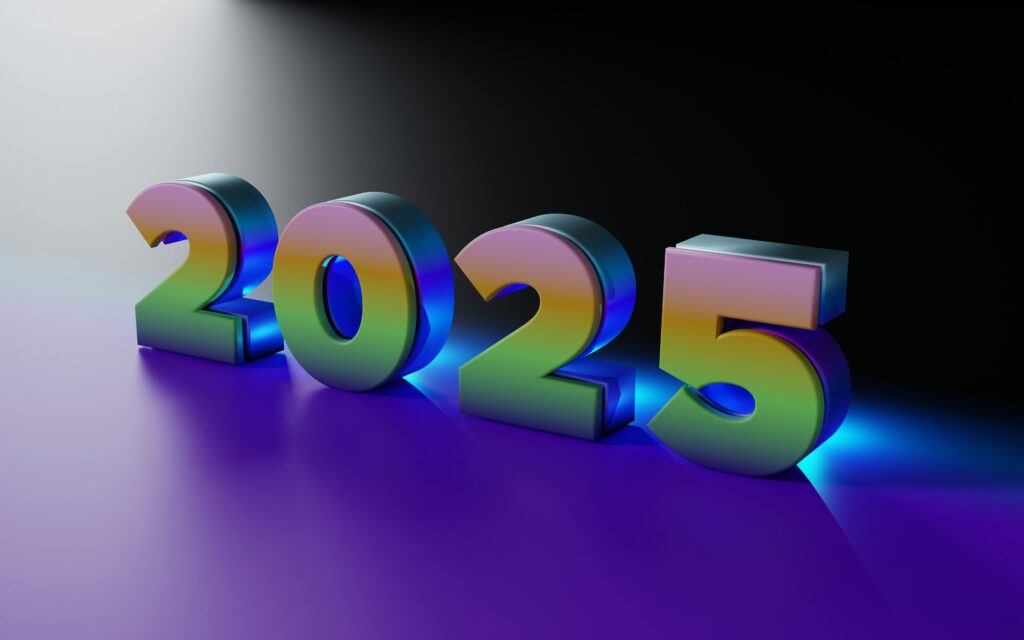In the realm of Non-Fungible Tokens (NFTs), the spotlight has predominantly shone on their role in revolutionizing the art world. However, the potential of NFTs extends far beyond the confines of galleries and digital artwork. As an avid explorer of blockchain technology and its applications, I’ve delved into the diverse and innovative use cases that NFTs offer in various industries.
From tokenizing real estate assets to transforming the gaming experience through unique in-game items, NFTs are reshaping traditional sectors and paving the way for new digital economies. In this article, I’ll unravel the untapped potential of NFTs, exploring their impact on music, collectibles, virtual real estate, and more. Join me on this journey as we uncover the exciting possibilities that NFTs bring to the table beyond the realm of art.
Overview of NFTs
As an avid follower of blockchain technology, I delve into the versatile nature of Non-Fungible Tokens (NFTs) and their expanding influence across multiple sectors. NFTs are revolutionizing industries like real estate, gaming, music, and collectibles, paving the way for novel digital ecosystems. My exploration uncovers the intrinsic potential of NFTs and their profound impact on these varied fields.
NFTs in the Gaming Industry
NFTs offer a unique opportunity for the gaming industry to revolutionize player experiences and ownership within virtual worlds. By tokenizing in-game assets and characters, gamers can truly own and trade virtual items, creating a new level of value and engagement. Let’s delve into some key aspects of NFTs in the gaming sector:
Virtual Land Ownership
Acquiring virtual land within games through NFTs has gained popularity, allowing players to own plots, build structures, and even monetize their virtual real estate. This ownership extends beyond mere gameplay and holds investment potential as virtual spaces appreciate in value based on demand and development within the game world.
NFTs in Music and Entertainment
Exploring Non-Fungible Tokens (NFTs) in the realm of Music and Entertainment opens up innovative possibilities for artists and fans alike. In these industries, NFTs are reshaping how content is created, shared, and valued, revolutionizing traditional models.
- Tokenized Music Albums:
- Tokenizing music albums as NFTs allows musicians to offer unique experiences to their audience. Each token can represent exclusive access to unreleased tracks, behind-the-scenes content, or even live concert tickets. By creating scarcity and ownership, artists can directly engage with their most dedicated fans while also unlocking new revenue streams.
- Limited Edition Merchandise:
- NFTs offer a new avenue for artists to release limited edition merchandise in the form of digital collectibles. These items can range from virtual wearables for avatars in music-related virtual worlds to exclusive artwork or interactive experiences tied to a particular album release. Fans can collect these unique digital assets, creating a sense of exclusivity and community around the artist’s brand.
- Royalty Management and Transparency:
- NFTs provide a transparent and efficient way to manage royalties in the music industry. Smart contracts embedded within NFTs can automatically distribute royalties to all relevant parties whenever a song is streamed, sold, or used in any form. This level of automation ensures fair compensation for artists, producers, and collaborators, reducing disputes and streamlining payment processes.
- Fan Engagement and Reward Programs:
- Artists can leverage NFTs to create personalized fan experiences and reward programs. By minting exclusive tokens that grant access to virtual meet-and-greets, private concerts, or VIP events, musicians can strengthen their connection with their fan base. These tokenized experiences not only enhance fan engagement but also provide a new revenue stream for artists beyond traditional music sales.
In the ever-evolving landscape of Music and Entertainment, Non-Fungible Tokens are driving innovation, empowering artists, and redefining how audiences interact with creative content. The intrinsic benefits of NFTs, such as proven ownership, scarcity, and programmable functionality, are reshaping the dynamics of these industries, ushering in a new era of digital creativity and engagement.
NFTs in Collectibles and Fashion
Exploring Non-Fungible Tokens (NFTs) in the realm of collectibles and fashion unveils a realm of creative possibilities that extend beyond traditional forms of ownership and expression. In today’s digital age, NFTs are revolutionizing the way we perceive and engage with collectible items and fashion pieces. Let’s delve into how NFTs are reshaping these industries:
- Digital Collectibles: NFTs have opened up a new frontier for collecting digital assets, ranging from virtual trading cards to unique digital artworks. These digital collectibles, authenticated by blockchain technology, offer collectors a secure and transparent way to own and trade rare and valuable items in the digital space. For instance, digital art pieces, limited edition virtual collectibles, and iconic moments from pop culture can be tokenized as NFTs, allowing enthusiasts to own exclusive digital memorabilia.
- Fashion Industry: NFTs are making waves in the fashion industry by redefining the concept of ownership and authenticity. Fashion brands are leveraging NFTs to create digital clothing lines, virtual accessories, and unique wearables that exist solely in the digital realm. Through tokenization, consumers can purchase virtual garments as NFTs, showcasing their style in the metaverse or digital spaces. Moreover, NFTs enable fashion houses to offer limited edition virtual collections, exclusive collaborations, and personalized digital fashion experiences to their clientele.
- Virtual Wearables: With NFTs, the concept of wearables is no longer limited to physical garments. Virtual wearables, such as digital skins, accessories, and cosmetics, are gaining popularity as NFT-powered fashion statements in virtual worlds and online gaming environments. Gamers and digital enthusiasts can personalize their avatars or characters with unique NFT wearables, reflecting their style and preferences in the digital landscape. The intersection of fashion and technology through NFTs is creating a new dimension of self-expression and creativity in the virtual sphere.
- Digital Ownership and Scarcity: NFTs introduce the concept of digital ownership and scarcity to collectibles and fashion items, emphasizing the value of exclusivity and provenance in the digital domain. By tokenizing collectibles and fashion pieces as NFTs, creators can establish limited editions, verifiable authenticity, and traceable ownership histories for each digital asset. This not only enhances the desirability of digital collectibles but also reinforces the unique value proposition of tokenized fashion items in the digital marketplace.
The integration of NFTs in collectibles and fashion represents a groundbreaking shift in how we engage with and perceive digital assets and virtual fashion creations. By embracing the innovative potential of NFTs, collectors, fashion enthusiasts, and creators can unlock new avenues of creativity, ownership, and expression in the evolving landscape of digital collectibles and fashion trends.
Potential Future NFT Applications
Exploring potential future applications of Non-Fungible Tokens (NFTs) reveals exciting opportunities for innovation and disruption across various sectors. As an advocate for blockchain technology, I foresee NFTs playing a transformative role in reshaping industries beyond their current applications. Let’s delve into some promising future use cases for NFTs:
1. Virtual Real Estate Development
In the future, NFTs could revolutionize the way virtual real estate is developed and traded within immersive digital environments. Imagine a scenario where individuals can purchase land parcels represented by NFTs, build virtual structures, and even monetize their virtual properties through diverse activities. This virtual real estate market could evolve into a thriving ecosystem where ownership rights are securely recorded on the blockchain, enabling seamless transactions and creating new avenues for investment and creativity.
2. Education and Certification
NFTs have the potential to disrupt the traditional systems of issuing certifications and educational credentials. In the future, academic institutions and certification bodies may adopt NFTs to issue digital certificates and qualifications. These NFT-based credentials would be tamper-proof, easily verifiable, and transferrable, providing individuals with a secure and portable way to showcase their skills and achievements. Moreover, the use of NFTs in education could revolutionize the concept of lifelong learning by enabling individuals to accumulate and showcase their diverse educational experiences on the blockchain.
3. Supply Chain Transparency
The adoption of NFTs in supply chain management could enhance transparency, traceability, and authenticity across various industries. By tokenizing physical products and linking them to unique NFTs, businesses can ensure the integrity of their supply chains, combat counterfeiting, and provide consumers with verifiable information about the origins and journey of products. In the future, NFTs could become instrumental in promoting sustainability, fair trade practices, and ethical sourcing by enabling consumers to make informed purchasing decisions based on transparent blockchain records.
4. Healthcare Data Management
NFTs hold the potential to revolutionize healthcare data management by providing a secure and immutable way to store and share sensitive medical information. In the future, patients could own and control access to their health records through NFTs, allowing for seamless interoperability between healthcare providers while maintaining patient privacy and data security. By leveraging blockchain technology, NFTs could enable patients to securely share their medical history, diagnostic reports, and treatment plans with healthcare professionals, ensuring efficient and secure data exchange within the healthcare ecosystem.
5. Carbon Footprint Offsetting
Future applications of NFTs could drive sustainability initiatives by facilitating carbon footprint offsetting and environmental conservation efforts. Businesses and individuals could acquire carbon credits represented as NFTs, which could be traded, stored, and verified on blockchain networks. By tokenizing carbon offsets, NFTs could incentivize sustainable practices, foster eco-friendly behaviors, and contribute to global efforts in combating climate change. The potential integration of NFTs in carbon markets could revolutionize environmental conservation strategies and empower individuals to actively participate in building a greener and more sustainable future.
By envisioning these potential future applications of NFTs, we can anticipate a paradigm shift in how technology, innovation, and digital assets converge to shape diverse sectors and pave the way for a new era of possibilities. NFTs have the potential to redefine ownership, creativity, and interactions in ways that transcend current limitations, unlocking novel opportunities for digital transformation and societal progress.






